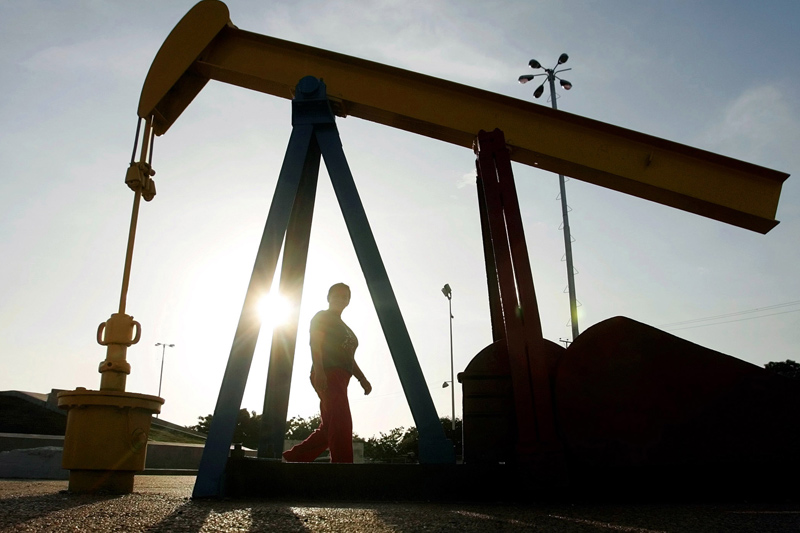By Dmitry Zhdannikov, Olga Yagova and Gleb Gorodyankin
LONDON (Reuters) - Hopes for a speedy resumption of oil exports from Russia to Poland and Germany along the Druzhba pipeline route are fading after plans to remove dirty oil from the pipeline had a major setback last week, three trading sources said.
Russia halted oil flows along the pipeline to Eastern Europe and Germany in April because of contaminated crude, leaving refiners in Europe scrambling to find supplies.
Under the restart plan, Total was due to take the lion's share of the dirty oil into its Leuna refinery in Germany to dilute and process it there, sources said.
The plan, not previously reported, would allow the pipeline to restart clean oil shipments after its biggest ever outage, now in its fourth week.
But last week the Leuna refinery had a major outage and had to stop many units after an equipment failure which sources said was possibly related to refining the dirty oil.
The outage, which sources said could last for at least another week, has derailed the dirty oil evacuation plan. Some 8-9 million barrels of contaminated oil - worth $560-$630 million in normal circumstances - are still sitting in the pipeline.
"The plan has collapsed. Someone needs to come up with plan "B"," said an industry source who is involved in discussions about dirty oil evacuation. "At the moment, there is no plan B. It is a deadlock".
Total declined to comment. Russia's pipeline monopoly Transneft and top Russian oil suppliers along Druzhba, Rosneft and Surgut, did not respond to a request for comment.
The Druzhba pipeline, built in Soviet times, can pump 1 million barrels per day or 1 percent of global output.
The contaminated oil crisis has become the biggest ever supply outage for Russia, the world's No.2 oil exporter. The country has had only one other significant disruption when Moscow suspended shipments in 2007 for three days over a pricing dispute with Belarus.
DEADLOCK
The current crisis has escalated since Belarus told oil refiners and pipeline operators in Europe nearly four weeks ago that the crude heading down the 5,500 km (3,400 mile) Druzhba was heavily contaminated with organic chloride, which is used to clean oil wells and accelerate the flow of crude.
Flows via Druzhba were halted, sending crude to a six-month high above $75 a barrel and tarnishing Russia's reputation as an exporter at a time of rising competition with the United States and Middle East.
Organic chloride should be removed before oil enters the supply chain as it can damage refining equipment. The dirty oil needs to be removed from the pipeline and stored so it can be diluted with clean oil.
Besides Leuna, Druzhba's northern spur supplies Germany's refinery Schwedt, which is co-owned by Rosneft, ENI (MI:ENI) and Shell (LON:RDSa). It also ships oil to PKN Orlen and Grupa Lotos refineries in Poland.
"Schwedt will take a much more cautious approach in taking dirty oil after the Leuna outage," a second trading source said. A third trading source said Schwedt was not taking dirty oil.
Rosneft, ENI and Shell declined to comment. PKN Orlen and Grupa Lotos also declined to comment on options for evacuating the dirty oil.
PKN's chief executive said on Monday Poland would not be able to get clean oil from Russia until refineries agree how to divide tainted crude still in the system.
Russia has repeatedly promised to restart clean oil flows towards Belarus, Poland and Germany "within days".
But it has yet to happen and even when it happens it will not mean the crisis is over, traders said.
"All this news about clean oil flows resumption is meaningless. Dirty oil is still blocking the pipelines," said the first industry source.
Russian officials will meet with European pipeline firms and oil buyers later this week to discuss the impasse.
A fourth industry source familiar with discussions said one of the suggestions for dirty oil evacuation was to reverse the pipeline and pump oil from Poland, Germany and Belarus back to Russia for storage and dilution.
But the oil has already changed hands multiple times and the Russian government has collected taxes and customs duties after the oil crossed the border.
All those payments would need to be reversed in a unprecedented move for the Russian government and the oil industry, the fourth source said.
(For a graphic on 'Map of the Russian oil pipeline' click https://tmsnrt.rs/2DytnnM)
